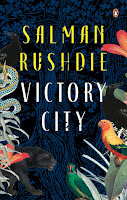
An Iron Harvest
This incident forms the kernel of Surendran’s novel. He describes a time in Kerala where Naxalites had fired the popular imagination, with students rallying behind an ideology that promised revolution and a changing of the old guard. It is an unrecognizable Kerala today. When Surendran describes feudal landlords exploiting tribal labour mercilessly, it seems like he is talking about today’s
The story is of John, an engineering college student, the leader of Red Earth, a Naxalite group that beheads cruel landlords and raids police stations. John is as close to a Che Guevara as one can get – the beard, the intellectualism, the on-the-run life he chooses. John’s friend Abe is the Rajan who disappears. It drives John further into the arms of the revolution that he is intelligent enough to recognize is not going to come to pass. John and his fellow-revolutionaries go deeper into the beautiful forests of Wynad where it becomes increasingly difficult to recognize friend from foe. A parallel story of Abe’s father, Sebastian, runs through the novel as he attempts to get justice for his son’s disappearance. Sebastian is the character you sympathise most with – his is an intense personal grief that hard to ignore by even the most hardened police officials. The DIG Raman, the man responsible for Abe’s death is portrayed as a sadist, taking pleasure in the torture he inflicts on his helpless prisoners.
Surendran’s tale is fast-paced and engrossing. As the police web tightens around John and his fellow-revolutionaries, there are events set in motion that work towards helping Sebastian. The darkness of the emergency is lifted and Sebastian can hope for the courts to grant him recourse. But it is already too late for John. His hopes for the revolution are fading along with his life.
It is a first novel and Surendran has chosen a subject that is obvious he is intimate with. He writes of the lure of leftist ideology in the time of fascism. It is an alluring concept, more so because of the juxtaposition. An interesting read of a time that no one should ever forget – when we came so close to losing so much of what we take for granted today.
Surendran’s language evokes a lush green and wet Kerala. He does not use language to mesmerize like Arundhati Roy, but in his quiet way he paints beauty beautifully. Yet he uses English quite self-consciously, translating a lot of the Malayalam that
I’ve always enjoyed CP Surendran’s columns. And An Iron Harvest is definitely one of the better Indian novels in English I have read in a long while.





